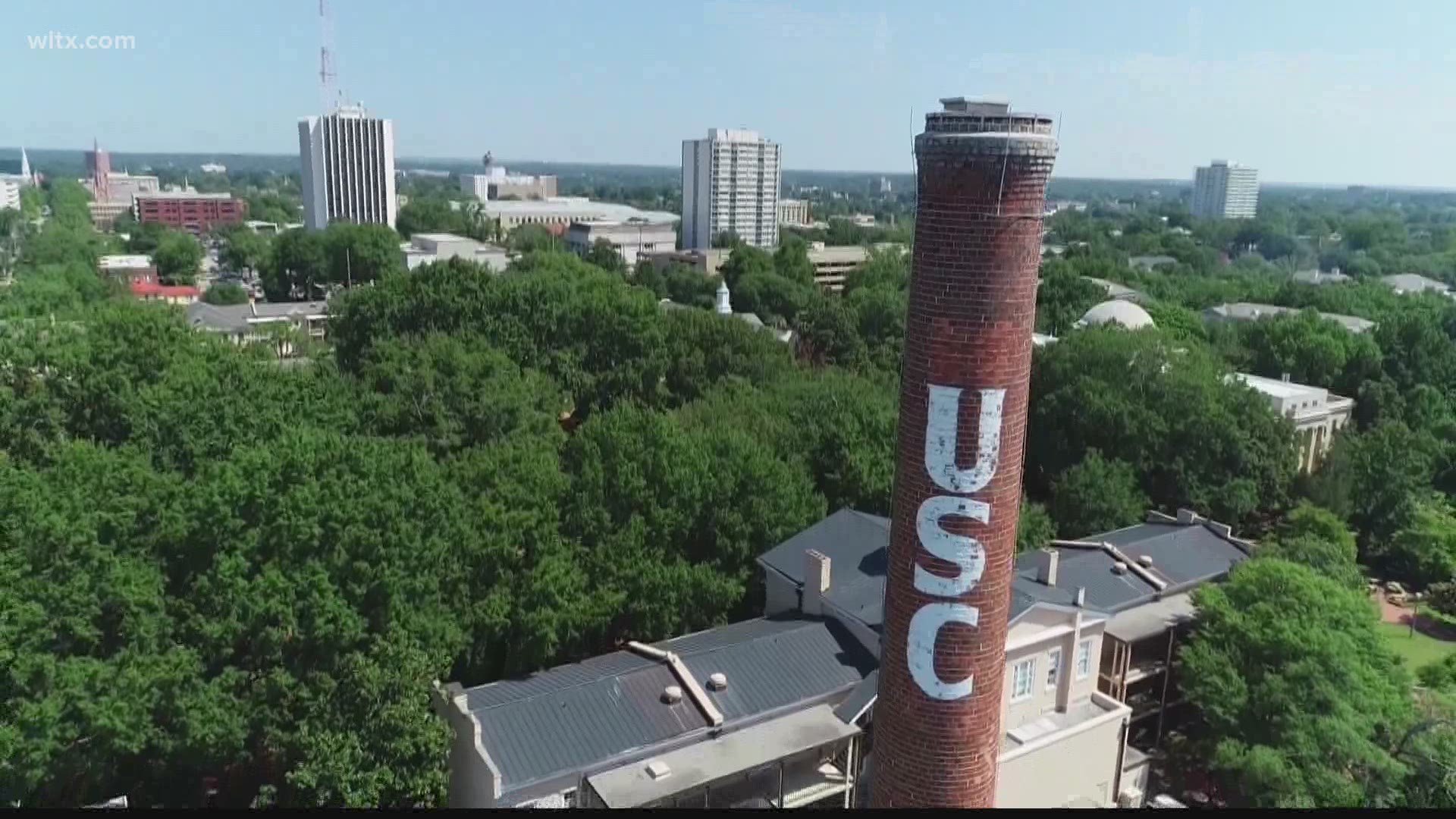COLUMBIA, S.C. — Officials with the University of South Carolina revealed their plan on how they hope to keep the coronavirus under control as student come back to campus for the upcoming fall semester.
The school released their COVID Mitigation Strategy Friday. Fall classes at the school begin on August 19th.
“We’ve been working with numerous medical experts and university officials with a commitment to creating a plan and making decisions that not only benefit individuals on campus, but it’s to benefit the health and safety of the entire campus and the surrounding communities,” said Dr. Jason Stacy, the interim director of University Health Services.
The interim health director confirmed the Delta variant has been detected on campus. They are encouraging students to get vaccinated to help battle the coronavirus and the Delta variant.
“That pushes us into what we’ve been working towards on campus, is really trying to incentivize and help our students get vaccinated,” explained Dr. Stacy. “We have ample supply on campus. We have been giving them out all along through the summer, giving them out to students that are coming to campus and even to some of their parents when they’re coming to orientation.”
National and state statistics show people in the age range of college students are the least likely to have been vaccinated at this point. That's why the school is working on starting a “Garnet and Vaxxed” incentive program to encourage more student to get vaccinated. While they haven’t released those incentives at the moment, school officials believe it will be one's students are excited about.
So far, there are 12,500 fully vaccinated students at the school.
The university will be requiring testing for faculty, staff and students when they come back to campus. Those who will be living in the dorms of the Greek Village will need to supply the school with either a completed vaccine card, a negative test or a passed prior positive within the last 90 days. The same rules apply for students living off campus as well as faculty and staff.
Masks will be required in the University Health Services areas and the counseling center. Masks will also be required for transportation. Masks are recommended in indoor settings where physical distancing is not possible.
The school will also continue to follow DHEC and CDC guidelines when they isolate those cases that occur on campus.
Compared to last Fall, there will be more students on campus. The school is planning on having more of a normal start of the year with in-person learning.
“The University of South Carolina is committed to having a safe and healthy campus. In this past year, we developed some of the best mitigation strategies in the country, perhaps possibly in the world,” said Dr. Stephen Cutler, the dean of the College of Pharmacy and the interim provost for the university, “We were one of only five universities to develop the saliva-based assay last summer.”
The school used the saliva-based testing to open the University of South Carolina. In the fall semester of last year, the school had about a four percent positivity rate and in the spring semester had about 1.4 percent.
The testing has been shared with other schools in the state and across the country.
“We also employed many other strategies. We had face coverings, we had hand sanitizer throughout the campus, the university health system afforded wonderful support to faculty, staff, students,” explained Dr. Cutler.
With people being able to receive the coronavirus vaccine during the spring semester, school believes it was impactful and helped limit the spread of the virus.
“These strategies allowed us to provide a very safe environment for our university and for the community and also for the state,” said Dr. Cutler. “We will continue to track the virus, we’ll monitor it. We do know that there are variants that we have to pay attention to. One of the things we expect to see is the natural evolution of a virus, is that we will see a spike perhaps in the first week or two when we return. But we will employ these mitigation strategies, dampen it down just as we did last fall as well as at the beginning of the spring semester.”

